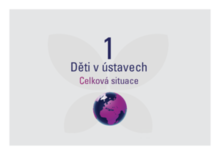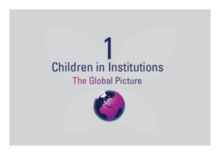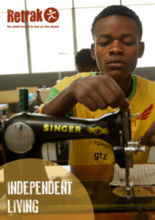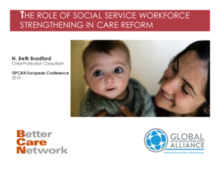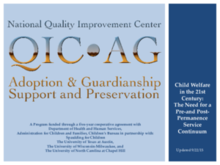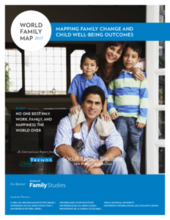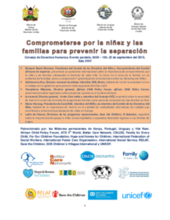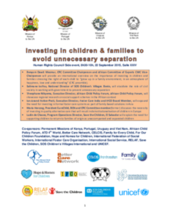Displaying 1021 - 1030 of 1343
Tato publikace mapuje počet dětí žijících v ústavech po celém světě.
This publication maps the number of children living in institutions worldwide.
This literature review explores current international and selected national policy on independent living arrangements and examines the evidence of good practice from existing independent living programmes for care leavers in order to assess how both of the above can be applied to street-connected children.
This short white paper by CAFO seeks to help readers accurately understand and carefully present orphan-related statistics.
This handbook provides links to tools and resources for engaging with and enlisting the support of religious communities and faith-based institutions towards the prohibition and elimination of corporal punishment of children.
This presentation was given by Beth Bradford at the ISPCAN European Conference in September 2015.
The presentation slides outline the webinar entitled Child Welfare in the 21st Century: The Need for a Pre-and Post-Permanence Service Continuum, which discusses the direction of child welfare in the 21st Century.
This annual report of the World Family Map Project shares the latest data on 16 indicators of family structure, family socioeconomics, family processes, and family culture in multiple countries as well as an original essay focusing on one important aspect of contemporary family life.
Este evento paralelo del Consejo de Derechos Humanos incluyó presentaciones en separación familiar en los contextos africanos, asiáticos, europeos, y latinoamericanos.
This Human Rights Council Side event included presentations on family separation in the African, Asian, European, and Latin American contexts.

